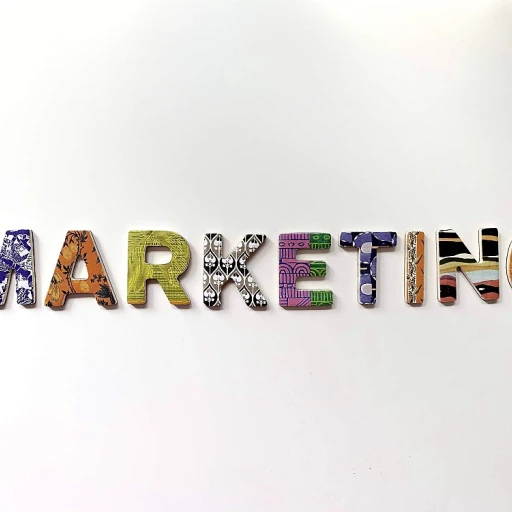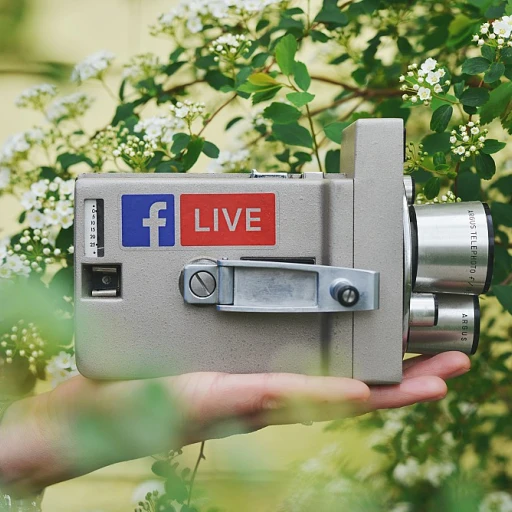
The Role of AI in Modern SEO
Understanding AI's Influence in SEO
The landscape of digital marketing is rapidly shifting, with AI at the forefront of this evolution. Brands and influencers who tap into AI's capabilities for search engine optimization (SEO) find themselves with a strategic edge in the highly competitive world of content marketing. But what does AI offer in terms of elevating SEO practices, and how can it bring both challenges and opportunities to the table?
AI is a game-changer in SEO because it enhances the efficacy of marketing campaigns by analyzing vast amounts of data quickly and accurately. It's about harnessing AI's power to predict consumer behavior and tailor content that resonates with your audience. This means AI can significantly refine the strategies that influence how people engage with social media platforms like Instagram and video content. When executed correctly, AI-driven SEO can lead to increased followers, higher engagement, and more meaningful connections with target audiences.
Moreover, AI aids in avoiding influencer marketing missteps, although it's not infallible. Even big names like Pepsi have experienced marketing fails when human oversight was absent, proving that while AI is powerful, the human element is crucial in steering the technology the right way. This calls for a discussion on balancing AI tools with traditional marketing insights, which we will explore further.
Nonetheless, when influencers and brands effectively deploy AI in their marketing campaigns, they often achieve better results. Understanding AI's role in SEO can also enhance a brand's trust factor with their consumers, making it essential for businesses to remain informed and adaptable.
For a deeper dive into the nuances of AI in digital strategies, you might explore perspectives on maximizing transmedia ROI with AI in SEO, which underscores the profound shifts AI brings to the marketing world.
Common Pitfalls: When AI Misguides Influencers
Understanding the Missteps
In the realm of digital marketing, influencers have become pivotal in shaping brand narratives. However, as artificial intelligence becomes more integrated into search engine optimization, influencers often find themselves navigating a complex landscape. The allure of AI-driven tools is undeniable, promising enhanced audience targeting and content personalization. Yet, these tools can sometimes lead influencers astray, causing significant pitfalls in their campaigns.
The Overreliance on AI
One of the most common mistakes influencers make is placing too much trust in AI without understanding its limitations. AI can analyze data and suggest strategies, but it lacks the nuanced understanding of human emotions and cultural contexts. This can lead to marketing fails where campaigns come across as tone-deaf or inauthentic, eroding trust among followers.
When Algorithms Fail
Influencers often rely on AI to optimize their content for social media platforms like Instagram. However, algorithm changes can drastically affect visibility and engagement. For instance, a sudden shift in how content is ranked might mean that a well-planned influencer campaign fails to reach its intended audience, resulting in a marketing fail. This underscores the importance of not solely depending on AI but also incorporating human insight and adaptability.
Learning from Influencer Fails
There have been numerous instances where influencers have gone wrong by misjudging their audience's response to AI-generated content. Whether it's a video that misses the mark or a product endorsement that feels disconnected, the lesson learned is clear: human intuition should guide AI tools, not the other way around. Brands and influencers must work together to ensure that campaigns resonate on a personal level, maintaining authenticity and trust.
Balancing AI with Human Insight
To avoid these pitfalls, influencers and brands should strive for a balanced approach. While AI can provide valuable insights and streamline content marketing efforts, it should complement rather than replace human creativity and judgment. By doing so, influencers can harness the full potential of AI-enhanced SEO, creating campaigns that are both effective and authentic.
The Impact of Algorithm Changes
The Unseen Effects of Algorithm Modifications
In the ever-evolving landscape of digital marketing, algorithm changes can pose significant challenges for influencers and brands alike. While AI-driven analysis can offer insights and advantages, it is crucial to note how algorithm shifts can abruptly alter the terrain, sometimes sending influencer marketing strategies into a tailspin. With platforms like Instagram and other social media channels continuously refining their algorithms, the ripple effects on influencer campaigns can be profound.
Imagine planning a detailed influencer campaign with a focus on maximizing followers' engagement, only to find out that an algorithm change has diminished the visibility of promotional content. This digital marketing pain point is not unusual. Significant algorithm updates can suddenly favor different types of content or penalize certain posting strategies, leading to unforeseen marketing fails. As influencers strive to boost reach and impact, such changes might undermine their efforts if they are not agile enough to adapt quickly.
Brands often rely on influencers to increase their product's visibility and trust among social audiences. Yet, algorithm changes can cause influencers to share content that does not resonate as anticipated. This misalignment can lead to campaigns that fall short of expectations—sometimes spectacularly so. Influencer fails, such as those associated with promotional campaigns that go unnoticed due to algorithmic tweaks, underscore the importance of understanding these shifts.
Digital campaigns that hinge on outdated AI insights or fail to accommodate new algorithm needs can lead brands astray. For instance, a campaign designed around video content may see significant visibility reduction if a particular social platform decides to prioritize other types of posts. These instances reinforce the importance of blending human intuition with AI insights to stay ahead of such changes.
Ultimately, effective influencer campaigns should consider key questions about demand generation, adaptability, and remaining vigilant about algorithm changes. To gain a deeper understanding of this aspect, check out some key questions to consider when planning demand-driven strategies in response to digital shifts.
Balancing Human Insight with AI
Finding the Sweet Spot Between Human and Machine
In the dynamic world of digital marketing, striking a balance between human intuition and artificial intelligence is crucial. While AI offers data-driven insights that can enhance SEO strategies, human touch is indispensable in understanding the nuances of brand identity and audience engagement.
AI can analyze patterns and predict trends, providing a foundation for influencer campaigns. However, relying solely on AI can lead to marketing fails when it comes to interpreting the cultural and emotional aspects of a campaign. For instance, AI might suggest a strategy based on data, but it lacks the ability to gauge the emotional impact of a social media post or a video campaign that resonates with people.
Leveraging Human Insight
Human insight is essential for crafting messages that connect with audiences on a personal level. This is particularly important in influencer marketing, where trust and authenticity are key. Influencers often have a deep understanding of their followers and can tailor content that aligns with their interests and values. This human element is something AI cannot replicate.
Learning from Marketing Fails
Many brands have learned valuable lessons from marketing campaigns that went wrong. These influencer fails underscore the importance of balancing AI's analytical prowess with human creativity and empathy. Whether it's a product launch that misses the mark or a social media post that sparks controversy, the key takeaway is the need for a harmonious blend of technology and human touch.
By integrating AI with human insight, brands can create more effective and resonant content marketing strategies. This approach not only helps avoid potential pitfalls but also builds a stronger connection with the audience, ultimately leading to successful digital marketing outcomes.
Case Studies: Influencers Who Got It Wrong
Learning from Social Media Missteps
In the rapidly evolving digital landscape, influencers have become powerful advocates for brands across platforms like Instagram and TikTok. However, when influencers fail to comprehend the dynamics of AI-enhanced SEO, marketing campaigns can go astray. By analyzing these instances, we gain valuable insights into avoiding similar mistakes in future digital marketing endeavors. Several influencers have faced significant challenges because they misunderstood digital marketing strategies, especially in terms of their target audience and the content they produce. For example, a major brand launched a campaign with an influencer who lacked authenticity, leaving their followers disengaged and distrustful. These scenarios underscore the importance of carefully aligning influencer strategies with AI-driven insights to ensure content marketing effectively reaches the intended audience. In some cases, influencers have chosen the wrong platforms or content types, leading to less engagement. A marketing fail can occur when an influencer amplifies a message that does not resonate with their audience, as seen in several campaigns where the digital content did not align with the brand's identity or values. This discord often results in losing credibility and audience trust. Lessons learned from these influencer fails emphasize the importance of thorough research and strategic planning. Marketers should conduct comprehensive analysis and evaluate whether influencers' follower demographics align with their brand's target market. Influencer marketing should be meticulously planned by leveraging the right social media platforms and AI tools to predict trends and measure campaign success. Exploring these case studies of influencers who lost track of effective marketing principles reinforces the need to balance AI insights with human intuition. By avoiding these pitfalls, digital professionals can initiate more impactful influencer campaigns that are likely to enhance brand loyalty and audience engagement. Learning from these mistakes can transform a marketing fail into a powerful lesson learned, driving future success in influencer marketing. Incorporating these lessons into ongoing strategies can steer brands away from potential hazards and towards impactful digital marketing experiences that resonate with people on a personal level.Best Practices for AI-Enhanced SEO
Optimizing AI for Effective SEO Strategies
In the rapidly evolving landscape of digital marketing, leveraging AI for SEO can be a game-changer. However, to truly harness its potential, brands and influencers must adopt best practices that align technology with human creativity and insight.
Understanding Your Audience
Before diving into AI tools, it's crucial to have a deep understanding of your target audience. This involves analyzing social media interactions, influencer campaigns, and digital marketing trends to tailor content that resonates with your followers. AI can assist in gathering data, but the interpretation of this data should be guided by human intuition and experience.
Integrating AI with Human Creativity
While AI can automate and optimize content marketing efforts, it should not replace the creative process. Successful marketing campaigns often involve a blend of AI-driven insights and human creativity. For instance, AI can identify trending topics or optimal posting times, but the creation of engaging content, such as compelling videos or relatable posts, should remain a human endeavor.
Monitoring Algorithm Changes
AI tools can help track and adapt to algorithm changes, ensuring that your SEO strategies remain effective. However, it's important to continuously monitor these changes and adjust your approach accordingly. Influencers and brands that fail to adapt may find themselves facing marketing fails, as seen in high-profile cases where campaigns went wrong due to outdated practices.
Learning from Influencer Fails
Analyzing past influencer fails can provide valuable lessons. Whether it's a marketing fail due to misjudged audience sentiment or a poorly executed product launch, understanding what went wrong can help refine future strategies. This involves not only looking at the data but also considering the broader social and cultural context.
Building Trust with Your Audience
Ultimately, successful AI-enhanced SEO relies on building and maintaining trust with your audience. This means being transparent about AI usage and ensuring that content remains authentic and relatable. Trust is a crucial component of influencer marketing, and brands must prioritize it to avoid the pitfalls of influencer campaigns gone wrong.













